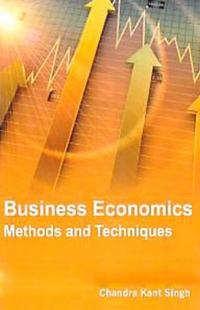Question
do not use handwriting or pictures, please Q1- (4 points) Consider an example of the tea market; if the supply and demand represented as: Qs
do not use handwriting or pictures, please
Q1- (4 points)
Consider an example of the tea market; if the supply and demand represented as:
Qs = 3p ;Qd = 20 - p
Solve:
a)Equilibrium price and equilibrium quantity and calculate total revenue?
b)If there were a price celling equal to 6 SAR per each cup of tea imposed, calculate the price elasticity of demand? Does this consider elastic, inelastic or unit elastic?Also, calculate the total revenue?
c)Now consider the coffee market; if the supply and demand is:
i.Qs = - 10 + 2p ; Qd = 110 - 6p,
calculate the equilibrium price and equilibrium quantity.Also, calculate Total Revenue.
ii.If there were a price celling equal to 18 SAR imposed per each cup of coffee, calculate the price elasticity of demand? Do the coffee consider elastic, inelastic or unit elastic? Also calculate total revenue. Hint; plug the new price on the demand curve formula, then find the new quantity demand after change in prices, after that solve for the elasticity by comparing the percentage changes in P & Qd.
d)Compare the total revenue between tea and coffee.Which one of product's total revenue has been increased after the price have been increase and why?Explain in words and show the difference in numbers as well.
e)Recall part a (tea) Calculate the CS & PS. Hint; you need to set Qs=0 & Qd=0 to find the intercept and calculate the CS, PS. then solve for P to find the intercept and calculate the CS, PS. Where the CS is the area between the intercept for demand and the equilibrium price you found on part a.Do not forget that this area is a triangle so carefully calculate the area.The same thing for PS.
f)Now, if the government impose a huge sales tax equal to 80 % on tea, what is the CS, PS, government revenue and DWL?Hint; price paid by the buyer equal 8 SAR and price received by seller equal4 SAR, the difference is the tax per cup of tea.The intercept points for the supply and demand on this part are the same as the ones on part e. To find the quantity, plug either the price for the buyer on the demand curve formula or the price for the seller on supply curve formula.Also, remember CS, PS & DWL have triangle area, whereas tax revenue has rectangular area.Graph this manually so you can easily find the answer.
g)Without calculation, would you expect to have higher/ lower government revenue and DWL on coffee and why?
Q2. (1 point)
Assume that Saudi Arabia produce only two products; Peanut Butter and Tomato sauce where are the price and quantity produced are:
Q1- (4 points)
Consider an example of the tea market; if the supply and demand represented as:
Qs = 3p ;Qd = 20 - p
Solve:
a)Equilibrium price and equilibrium quantity and calculate total revenue?
b)If there were a price celling equal to 6 SAR per each cup of tea imposed, calculate the price elasticity of demand? Does this consider elastic, inelastic or unit elastic?Also, calculate the total revenue?
c)Now consider the coffee market; if the supply and demand is:
i.Qs = - 10 + 2p ; Qd = 110 - 6p,
calculate the equilibrium price and equilibrium quantity.Also, calculate Total Revenue.
ii.If there were a price celling equal to 18 SAR imposed per each cup of coffee, calculate the price elasticity of demand? Do the coffee consider elastic, inelastic or unit elastic? Also calculate total revenue. Hint; plug the new price on the demand curve formula, then find the new quantity demand after change in prices, after that solve for the elasticity by comparing the percentage changes in P & Qd.
d)Compare the total revenue between tea and coffee.Which one of product's total revenue has been increased after the price have been increase and why?Explain in words and show the difference in numbers as well.
e)Recall part a (tea) Calculate the CS & PS. Hint; you need to set Qs=0 & Qd=0 to find the intercept and calculate the CS, PS. then solve for P to find the intercept and calculate the CS, PS. Where the CS is the area between the intercept for demand and the equilibrium price you found on part a.Do not forget that this area is a triangle so carefully calculate the area.The same thing for PS.
f)Now, if the government impose a huge sales tax equal to 80 % on tea, what is the CS, PS, government revenue and DWL?Hint; price paid by the buyer equal 8 SAR and price received by seller equal4 SAR, the difference is the tax per cup of tea.The intercept points for the supply and demand on this part are the same as the ones on part e. To find the quantity, plug either the price for the buyer on the demand curve formula or the price for the seller on supply curve formula.Also, remember CS, PS & DWL have triangle area, whereas tax revenue has rectangular area.Graph this manually so you can easily find the answer.
g)Without calculation, would you expect to have higher/ lower government revenue and DWL on coffee and why?
Q2.
Assume that Saudi Arabia produce only two products; Peanut Butter and Tomato sauce where are the price and quantity produced are:

Step by Step Solution
There are 3 Steps involved in it
Step: 1

Get Instant Access to Expert-Tailored Solutions
See step-by-step solutions with expert insights and AI powered tools for academic success
Step: 2

Step: 3

Ace Your Homework with AI
Get the answers you need in no time with our AI-driven, step-by-step assistance
Get Started


